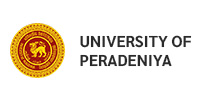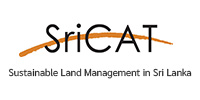School Indoor Air Quality Education Program
The indoor air quality (IAQ) has a significant impact on human health. An average person spends about 70-90% of time during a day in confined and/or indoor environments, which include classrooms, homes, shopping centers, vehicles, office spaces, etc. The presence of carbon dioxide, carbon monoxide, radon, volatile organic compounds, particulate matter, ozone and biological contaminants like bacteria, fungi and viruses, above maximum permissible levels, deteriorate IAQ. Living in spaces with poor IAQ causes acute- and chronic-illnesses, leading to reduced productivity and performances of people. Although people have some level of awareness about air pollution and sources of pollutants in outdoor environments, their understanding of IAQ is not satisfactory.
Agronomic practices affect IAQ of households in agricultural landscapes, and indoor gardening has a direct impact on IAQ. Therefore, the Department of Soil Science of the Faculty of Agriculture together with the Department of Science and Environmental Studies of Education University of Hong Kong (EDUHK) conducted an outreach program aiming to increase awareness among school children in Sri Lanka on IAQ and its importance for healthy living. They received support from the Department of Education and Sabaragamuwa Provincial Office of the Central Environmental Authority (CEA) of Sri Lanka to coordinate the activities.
In Sri Lanka, the school curriculum for primary and secondary education have some details about air quality of outdoor environments, and lack detailed description of IAQ and its relevance to human health. The program specifically educated school children on the sources of pollutants in indoor air and methods to monitor and improve air quality.
The sessions were conducted in the months of August and September of 2024 with the participation of 605 students from 25 schools, 50 teachers and 12 officers of CEA. The CEA supported the program for Environment Pioneers (student volunteers working with CEA) from selected schools in Kegalle and Rathnapura Districts (9 and 12 schools, respectively). Sessions in Kandy district were conducted at Swarnamali College, Hemamali College, Sylvester's College and Trinity College. A group of undergraduate students supported the activities by serving as Program Assistants. The program conducted at each school consisted of a seminar, discussion sessions and practical on IAQ monitoring. Teaching and learning materials developed by Dr. Deng and her team for the school programs in Hong Kong were used during the program conducted in Sri Lanka.
The program was coordinated by Dr. Deng Wenjing from EDUHK, Prof. Keith Ho Wing-kei from EDUHK and Prof. Warshi S. Dandeniya from the Department of Soil Science of University of Peradeniya.





















